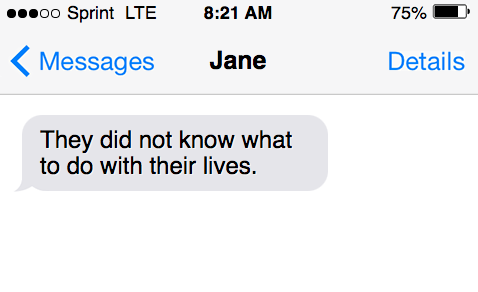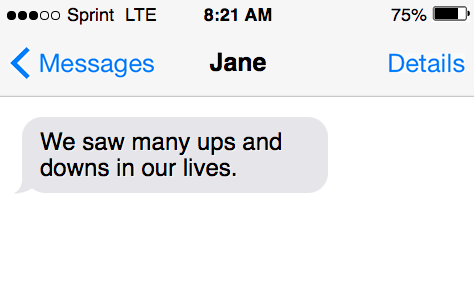To form the plural word of the base word life can be tricky. Typically, a pluralized form of any word simply ends with an “s” letter. But not in the case of the base form life. It has a non-standard pluralization form. But what is that form?
Understand the difference between lives and lifes in this short guide…
Is it Lifes or Lives?
What is the correct plural form of the word life? Is it lifes or lives? In the English language, words are mostly get changed into plural forms by adding the letter “s.” The form of the verb for the plural word also changes accordingly.
However, the word “life” is an exception to this. Which is the correct plural form of “life”? Is it “lifes” or “lives”?

Definition of lives
The word “lives” is a singular verb in the third person. Also, “lives” but not “lifes” is the correct plural form of the word “life” in English.
| Word | Definition |
| Lives (plural of the noun life) /līf/ | the condition that distinguishes animals and plants from inorganic matter, including the capacity for growth, reproduction, functional activity, and continual change preceding life. |
Example:
Definition of “lifes”
This is not a word in the English language. Lifes is not the correct form of the plural word lives.
The correct plural form of life is obtained by replacing the letter “f” with the words “vs”.
Examples:
- They were unsure about how to lead their lifes. (Incorrect)
- They were uncertain about what to do with their lives. (Correct)
Difference between “lifes” and “lives”
Lives and lifes may look like two different spellings of the word life. However, we need to understand that lifes is not a word at all. Rather many people misspell the word “lives” as “lifes.”
Lifes is a common way to spell lives. People who use this word wanted to use it as the plural form of life.
However, they forgot to change the letter “f” to “v” and used the alphabet “s” instead.
Example:
- Many people feel that cats have more than one lifes. (It is an incorrect spelling and you should use the word “lives” instead)
On the other hand, the word lives may act as a verb or noun form. It typically refers to not being unalive and existing.
Examples:
- They could not take a chance with their lives and return to the battlefield. (Noun form)
- He lives in the United States of America (Verb form)
Which is the correct spelling?
Avoid using “lifes” as a plural form of life. Because it’s not a word!
If you wish to use life’s plural form, replace the letter “f” with a “v”.
Fun fact: Life in its noun form means the existence of plants and animals. It’s a beautiful word!

When to use “lifes”
A majority of singular words in the English language transform into their plural forms by just adding the letter “s.” Or apostrophe and “s.”
It can be a bit tricky to remember how to pluralize words that end with “fe” or “f.”
For these words, it isn’t sufficient to add “s” to make them plural. As a result, the word “lifes” can become a commonly found grammatical error.
Sentence examples
Remember, “lifes” or “life’s” is not the correct pluralized form of the noun “life.” Do not use it.
Incorrect example’s are:
- His life’s in a total mess. (Contraction)
- Her life’s aim is to become a model. (Possessive)
When to use “lives”
Here’s how and when to use the word “lives” in the form of nouns and verbs:
1. “Lives” in noun form: We have already mentioned that the word is the proper plural form of “life” (a noun). Many people are confused about whether they should write “lifes” or lives” as the plural form of the word “life.”
2. Lives in the verb form: The word is also the third-person singular form of the verb phrase “to live”, which also means “to be alive.
Sentence examples
1. Examples of the word lives in the noun form
- The book is about the lives of celebrities in the UK.
- They did not know what to do with their lives.
- The earthquake took the lives of more than 500 people.
2. Examples of the word lives in the verb form
- She lives in downtown Bangalore.
Is it “our lives” or “our lifes”
The word life in English does not have a standard plural form as it ends with the letters “fe”.
There are several nouns in the English language which end with “fe” and “f” and have their plural forms ending with “ves.”
The correct way to use the plural form of “life” will be “our lives” instead of “our lifes.”
Let’s see more examples to get a better understanding of this:
- We value our lives so always follow traffic rules on the road. (correct)
- We attach great importance to our lifes and always follow traffic rules while driving. (incorrect)
If you are talking about two lives, which are to be considered individually, you can use the same word “lives.”
For instance:
- Their lives went in different directions.
On the other hand, if two lives are to be considered as one, we may use the words “our life.”
For example:
- Their family life is good.
Is it “in our lives” or “in our lifes”
Use “in our lives” instead of “in our life” to denote a plural form.
For instance:
- We saw many ups and downs in our lives. (Correct)
- We experienced many ups and downs in our lifes. (Incorrect)
Is it “life together” or “lives together?”
Typically, “lives together” is the correct way to say this phrase.
Is it “saving lifes” or “saving lives?”
The correct way to say this phrase is “saving lives.” It uses the past participle form of life correct.
Is it “family’s life” or “family’s lives?”
Both are possible. Making it challenging. The reason that both forms are acceptable is because the word “family” is the form that is getting pluralized. And the words life or life change accordingly.
Sources
Inside this article
Fact checked:
Content is rigorously reviewed by a team of qualified and experienced fact checkers. Fact checkers review articles for factual accuracy, relevance, and timeliness. Learn more.
Core lessons
Glossary
- Abstract Noun
- Accusative Case
- Anecdote
- Antonym
- Active Sentence
- Adverb
- Adjective
- Allegory
- Alliteration
- Adjective Clause
- Adjective Phrase
- Ampersand
- Anastrophe
- Adverbial Clause
- Appositive Phrase
- Clause
- Compound Adjective
- Complex Sentence
- Compound Words
- Compound Predicate
- Common Noun
- Comparative Adjective
- Comparative and Superlative
- Compound Noun
- Compound Subject
- Compound Sentence
- Copular Verb
- Collective Noun
- Colloquialism
- Conciseness
- Consonance
- Conditional
- Concrete Noun
- Conjunction
- Conjugation
- Conditional Sentence
- Comma Splice
- Correlative Conjunction
- Coordinating Conjunction
- Coordinate Adjective
- Cumulative Adjective
- Dative Case
- Determiner
- Declarative Sentence
- Declarative Statement
- Direct Object Pronoun
- Direct Object
- Diction
- Diphthong
- Dangling Modifier
- Demonstrative Pronoun
- Demonstrative Adjective
- Direct Characterization
- Definite Article
- Doublespeak
- False Dilemma Fallacy
- Future Perfect Progressive
- Future Simple
- Future Perfect Continuous
- Future Perfect
- First Conditional
- Irregular Adjective
- Irregular Verb
- Imperative Sentence
- Indefinite Article
- Intransitive Verb
- Introductory Phrase
- Indefinite Pronoun
- Indirect Characterization
- Interrogative Sentence
- Intensive Pronoun
- Inanimate Object
- Indefinite Tense
- Infinitive Phrase
- Interjection
- Intensifier
- Infinitive
- Indicative Mood
- Participle
- Parallelism
- Prepositional Phrase
- Past Simple Tense
- Past Continuous Tense
- Past Perfect Tense
- Past Progressive Tense
- Present Simple Tense
- Present Perfect Tense
- Personal Pronoun
- Personification
- Persuasive Writing
- Parallel Structure
- Phrasal Verb
- Predicate Adjective
- Predicate Nominative
- Phonetic Language
- Plural Noun
- Punctuation
- Punctuation Marks
- Preposition
- Preposition of Place
- Parts of Speech
- Possessive Adjective
- Possessive Determiner
- Possessive Case
- Possessive Noun
- Proper Adjective
- Proper Noun
- Present Participle
- Prefix
- Predicate



